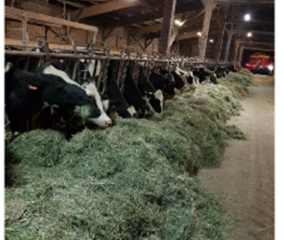eSperança – 100% electric & autonomous diving catamaran
France
Introduction
Since its creation in 2015, the Paradis des Bulles has been an eco-responsible diving center. With a real desire to develop a sporting practice respectful of the environment. The center first broke the codes for the standard operation of a diving center by taking inspiration from slow tourism. It offers exclusively diving outings for the day or over several days, in limited numbers with the aim of taking your time.
This limits travel and the associated pollution.
Of course, no solution is perfect, and relentless modern advances are taking the concept even further. In 2020, we wanted to launch a totally innovative project: the first 100% electric diving boat in operation in France! The cherry on the cake, the boat is autonomous in water and energy, and accessible to all. This is how the ePerança was born!
The boat can accommodate people with disabilities, families, businesses for environmental awareness workshops.
Presentation of the project
Paradis des Bulles is a diving center based in Port-Vendres, Occitanie. Diving is a leisure activity with a strong connection to the environment. The mission of the center was to try to limit our impact on the community. Every year we try to go further in our approach. More than 80% of a dive’s carbon footprint is tied to transportation by boat. We naturally wanted to reduce this footprint by designing a 100% electric dive boat.
While we have had electric cars around us for years, boats are not. Indeed, navigation at sea imposes other constraints and the solutions developed for cars are not directly transposable. Furthermore, as the marine environment is particularly difficult for equipment, it was important to design a solution that is simple, reliable and robust.
The aim of this project was therefore to demonstrate that alternative solutions are possible by proposing an electric motorization solution that is no more expensive than a thermal solution, by working with local stakeholders and by favoring the circular economy.
So we made the e-Sperança, a 15m by 6.5m diving catamaran for 11 Tons. This is the first 100% electric boat in operation at sea in France. The batteries were manufactured in Bordeaux, the engines in Nîmes and the solar panels in Toulouse.
Thanks to solar panels, the boat, in addition to being electric, is totally self-sufficient in energy since we can go out every day for several months without having to charge the batteries at dock. We also installed a desalinator to make it water-independent.
This boat is a tool for raising environmental awareness: we therefore welcome divers, families who come to discover the activity, but also companies to organize seminars on the environment. We offer various activities: diving, underwater hiking, snorkeling, paddle. It was important that the activity was accessible to as many people as possible, so we designed the boat to meet PMR. standards so that it could be used in wheelchairs and built an elevator so that everyone with a disability could dive.
The e-Sperança allows you to discover our coast, the Côte Vermeille in silence and without smell. We take advantage of the trip to tell the story of the city, the wrecks, the marine park, the reserve, to present the different eco-systems etc… This smooth navigation allows to change the mindset of the participants when approaching the activity, and allows to create a link. It also makes it possible to reduce the pressure on the medium by greatly limiting the noise pollution.
The Leader program supported us with funding which enabled us to reach the budget needed to carry out the project.
The emblematic character of the project
The aim of the dive is to discover the underwater environment. Divers marvel at the beauty of the dives. But often this activity is timed and to increase profitability, the diving centers go as quickly as possible to the diving sites, which requires a large amount of fuel. By way of indication, a diving boat consumes 10 times more than a car at an equivalent distance! And sailing to dive sites accounts for more than 80% of the dive’s carbon footprint (including commuting to and from the dive center, boating, and inflating water bottles). We therefore felt it essential to propose an alternative in order to demonstrate that it is possible to have a more environment-friendly approach.
But there were no fully electric boats in operation. It’s a first, so we started the project by looking at what was available, for example, in a lake or river, or hybrid solutions at sea. We analyzed the difficulties encountered by the other projects in designing the e-Sperança. All elements of the propulsion chain (engines and batteries) were designed and built for the project, with local partners.
The resulting drive train is no more expensive than a thermal solution, so that those who want to try it can do so.
Navigation at sea seems to be more suitable for electricity than the car: navigation at constant speed, which increases the battery life (accelerations in cars age batteries prematurely), the weight of the batteries is negligible on that of the boat unlike the car, the size of the boats makes it possible to have a significant production of energy in photovoltaics for example.
But navigation at sea entails greater safety constraints than in a car: the weather can change abruptly at sea and any breakdown endangers the occupants of the ship.
In the end, the solution achieved is transposable to many other activities: other diving centers of course, but also boating for family outings, the “small trades” (small fishing boats) that go out to put nets, traps … in coastal navigation, or even service boats like pilots.
We have also quantified the project’s greenhouse gases with Ademe to ensure the project’s positive impact, which saves (if its lifespan was only 10 years) more than 330T of CO2. Apart from the fuel saved by electric navigation, there are also all consumables (oil filters, diesel filters, oil…) which represent a non negligible pollution.
Photos
Link to a page containing different materials about the project:
Simon Briot
Pays Pyrénées Méditerranée
Occitanie

